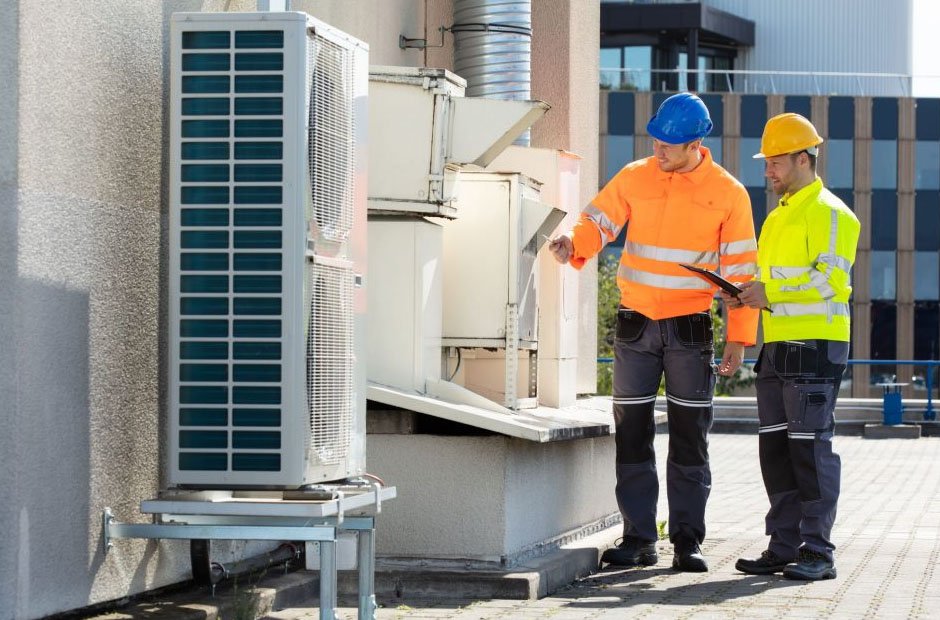In the warmth and humidity of Hollywood FL, the precision involved in sizing Heating, Ventilation, and Air Conditioning (HVAC) systems is a critical concern. For residents and businesses alike, the right HVAC size is more than a matter of comfort; it’s a crucial factor in ensuring energy efficiency and environmental sustainability.
An optimally sized HVAC unit is key to maintaining a balanced indoor climate, preventing the excessive consumption of energy, and ensuring the longevity of the system itself. This necessity underscores the importance of having HVAC contractors who not only understand the local climate dynamics but are also adept in the nuanced art and science of HVAC system design.
Table of Contents
Understanding HVAC System Sizing: Key Concepts and Parameters
HVAC system sizing is an intricate process that requires a nuanced understanding of thermal dynamics and the specific needs of a building. The process involves calculating the British Thermal Units (BTUs) required to heat or cool a space effectively. This calculation takes into account various factors, including square footage, ceiling height, window size, and insulation quality.
The goal is to achieve a balance where the system is neither too powerful (leading to unnecessary energy consumption and wear) nor too weak (resulting in inadequate temperature control). Mastery of these concepts is essential for HVAC contractors, as they guide the decision-making process in selecting the right equipment for each unique situation.
The Consequences of Improper Sizing: Oversizing and Undersizing Dilemmas
Improper sizing of HVAC systems can lead to significant problems. Oversizing a system can cause it to cycle on and off more frequently, which can lead to increased wear and tear, higher operational costs, and a shortened lifespan of the unit. On the other hand, undersizing can result in a system that is constantly running, struggling to reach the desired temperature, leading to wasted energy and increased bills.
Furthermore, both scenarios can negatively affect indoor air quality and comfort, creating a less-than-ideal living or working environment. The intricacies of HVAC sizing in Hollywood, FL, are particularly pronounced due to its humid climate, making the consequences of sizing errors more severe and impactful.
HVAC Contractors’ Expertise in System Design and Sizing
The expertise of HVAC contractors is pivotal in ensuring the correct sizing of HVAC systems. These professionals employ a comprehensive approach, utilizing advanced tools and methodologies like Manual J calculations to assess the heating and cooling needs accurately. They consider all aspects of the property, from layout and orientation to window sizes and insulation levels. This holistic view enables them to recommend systems that are perfectly tailored to the specific requirements of each space. Their technical knowledge and practical experience are indispensable in navigating the complexities of HVAC system design and ensuring that installations are both efficient and effective.
Best Practices for HVAC Sizing: A Guide for Homeowners and Businesses
For homeowners and businesses in Hollywood, FL, understanding the best practices in HVAC sizing is crucial. It begins with selecting a reputable contractor who has a proven track record in accurate system design and installation. It is essential to engage professionals who conduct thorough assessments, considering all the variables that influence heating and cooling needs.
Homeowners and business operators should be proactive in their approach, seeking multiple quotes and understanding the rationale behind each recommendation. By doing so, they ensure that their HVAC system is not only sized correctly but also optimized for performance, efficiency, and durability, leading to improved comfort and reduced operational costs over time.
Conclusion
The paramount importance of accurate HVAC system sizing in the context of system design is a critical factor, particularly in the unique climatic conditions of Hollywood, FL. Achieving the correct size is not merely a matter of operational efficiency; it is fundamentally linked to ensuring thermal comfort, optimizing energy consumption, and promoting environmental sustainability. Inappropriate sizing, whether it’s an oversized or undersized unit, can precipitate a myriad of complications.
These range from inflated energy expenses and unnecessary strain on the HVAC system to adverse environmental repercussions due to increased carbon footprints. In this intricate domain, the expertise of HVAC contractors becomes invaluable. These professionals are not just technicians; they are vital consultants who bring a wealth of knowledge and experience, ensuring that HVAC systems are not only precisely sized but also congruent with the specific requirements of the space they serve.










